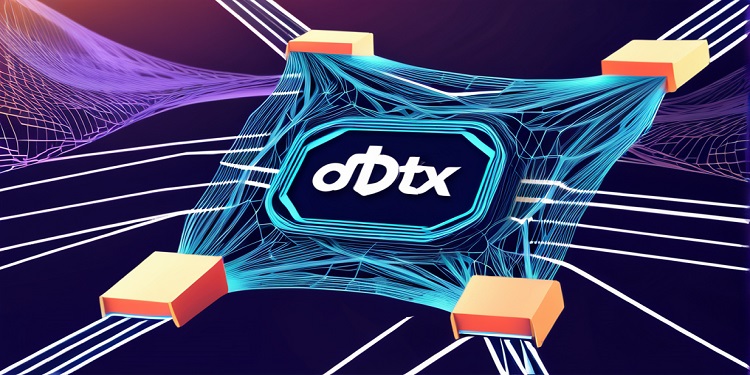Cardano's NFT Metadata Challenge Solved by Paima Studios
As Cardano continues to expand its decentralized ecosystem, a significant challenge has been the native smart contract language, Plutus, and its inability to access transaction metadata.

As Cardano continues to expand its decentralized ecosystem, a significant challenge has been the native smart contract language, Plutus, and its inability to access transaction metadata. This limitation has impacted the functionality of NFTs, on-chain games, and other decentralized applications. Paima Studios, a Web3 application engine firm, has now addressed this issue, providing a breakthrough for Cardano developers.
Background and Initial Challenges
Sebastien Guillemot, co-founder of Paima, revealed the new update, highlighting the growing popularity of Cardano NFTs. These NFTs are issued under the token standard CIP25, which is akin to Ethereum’s ERC-721. CIP25 defines an NFT’s attributes, such as image, name, and URL, within its transaction metadata. However, the Plutus language’s inability to access this metadata has hindered the development and utilization of dApps on the Cardano network.
We managed to get a Cardano Plutus script to validate CIP25 metadata 🔥
Big implications, and enables many new use-cases:
・NFT AMMs (not easily doable in EVM!)
・New interop standards
・Onchain gamesand we just open-sourced it🫡
How did we achieve this? ↓🧵 pic.twitter.com/KUikGQtWzX— Sebastien Guillemot (@SebastienGllmt) July 6, 2024
This problem is not unique to Cardano. Even Ethereum, which is more advanced, faces similar issues. Ethereum developers often use oracles to link to off-chain data or implement complex mechanisms to work around this limitation. Cardano developers have also sought solutions, most notably through the CIP68 standard. CIP68 bypasses transaction metadata by introducing a new on-chain data system known as datums. While effective, this solution created additional challenges, such as higher costs and compatibility issues with existing tools that still support CIP25.
A New Approach by Paima Studios
Guillemot and his team at Paima Studios have proposed a novel approach to accessing metadata directly through Plutus, regardless of the token standard. This method involves using Plutus to access the transaction hash, which contains the metadata. A Plutus smart contract is equipped with the final transaction hash and performs all necessary fields and checks to ensure the hash matches.
So suppose you have a Plutus smart contract
It knows the final tx hash
So to prove the tx contains certain metadata, you just need to
1. provide every other field
2. check the hash matches!Fortunately, many fields are duplicated between the tx body and the Plutus context pic.twitter.com/6G0zzbxaIJ
— Sebastien Guillemot (@SebastienGllmt) July 6, 2024
Guillemot elaborated on the mechanics of this solution, explaining that they built an Aiken smart contract capable of reconstructing the transaction binary data in Aiken and verifying its match with the hash. This new approach addresses two critical questions: feasibility and cost-efficiency.
The team found that this method significantly reduces costs compared to the CIP68 standard, as it lowers the number of UTXOs required, cutting expenses in half.
Implications for the Cardano Ecosystem
This development by Paima Studios represents a significant advancement for the Cardano ecosystem. By enabling Plutus to access transaction metadata directly, the new approach removes a major obstacle for developers, allowing for greater innovation and utilization of NFTs and other decentralized applications. The reduction in costs also makes the Cardano network more attractive to developers and users alike.
Furthermore, this solution demonstrates the ongoing evolution of blockchain technology and the potential for continuous improvement. By addressing one of the key limitations of the Cardano network, Paima Studios has paved the way for a more robust and versatile ecosystem.
Future Prospects and Potential
Looking ahead, the implications of this solution are profound. As Cardano developers begin to implement this new approach, it is likely to spur a wave of new applications and use cases, enhancing the overall functionality and appeal of the network. The ability to efficiently access and utilize transaction metadata will open up new possibilities for NFTs, on-chain games, and other decentralized applications.
Moreover, this development highlights the importance of innovation and problem-solving within the blockchain space. By tackling complex challenges and finding efficient solutions, firms like Paima Studios are driving the industry forward, setting the stage for a more dynamic and integrated digital ecosystem.
In conclusion, the breakthrough by Paima Studios in enabling Plutus to access transaction metadata marks a pivotal moment for the Cardano network. This solution not only resolves a significant technical challenge but also positions Cardano for continued growth and innovation. As the ecosystem evolves, the contributions of forward-thinking firms and developers will be crucial in shaping the future of blockchain technology.
SNEKbot by DexHunter on CARDANO
Cardano's Telegram Trading Bot live on Cardano mainnet!TRADE NOW!








